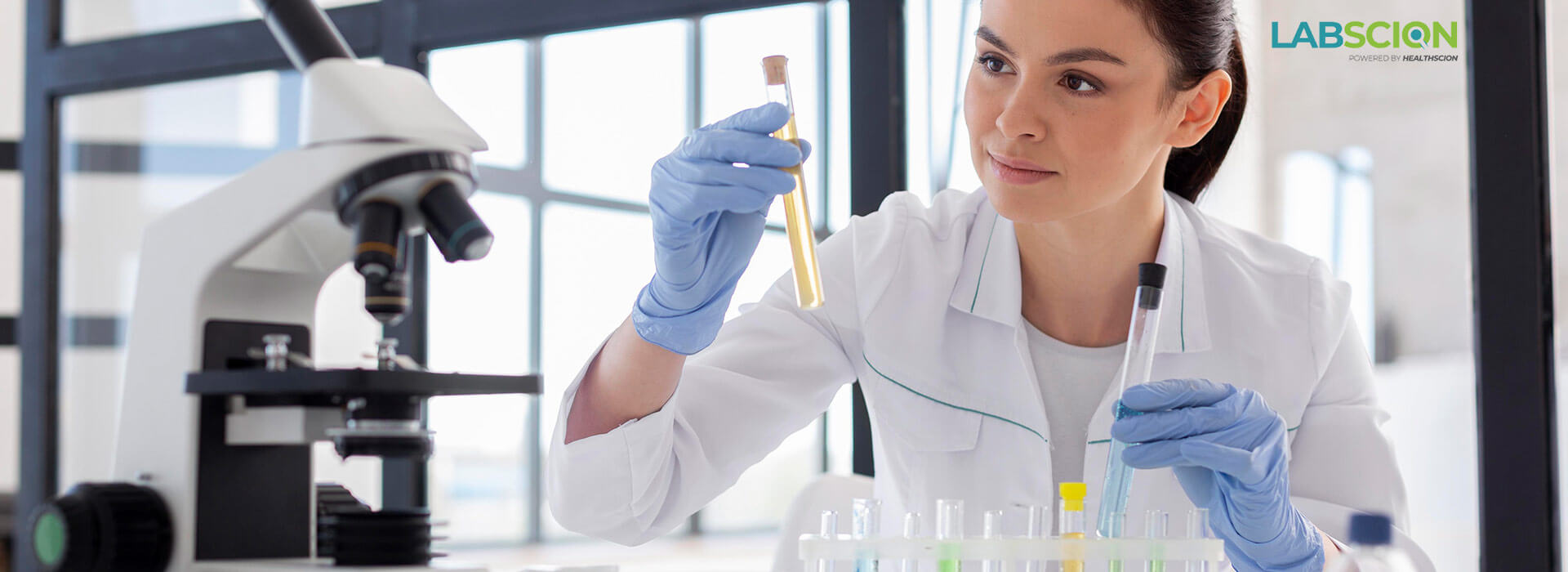
A laboratory software system is a revolutionary solution in healthcare that manages and organizes patient data related to laboratory processes and tests. It is a platform for healthcare providers and laboratory professionals to optimize workflow and maintain quality control in medical testing, covering areas like chemistry, hematology, microbiology, immunology, toxicology, and public health. These systems efficiently track, store, and update clinical information during patient visits, ensuring it is stored in a comprehensive database for future reference and retrieval.
How Does LIS Software Work?
Laboratorysoftware systems are comprehensive systems responsible for recording, managing, updating, and storing patient testing data in clinical and anatomic pathology laboratories. Its functionalities encompass a range of tasks, including receiving test orders, sending those orders to laboratory analyzers, tracking orders and results, maintaining quality control, and transmitting results to other information systems such as Electronic Health Records (EHR) or practice management systems.
Additionally, the software can incorporate decision-support rules that help guide workflow, provide outreach tools for communication purposes, offer data mining capabilities for analysis and reporting, enable audit capabilities for quality assurance, and support point-of-care testing. By integrating these features, the LIS system enables the laboratory to actively contribute to determining patient health status and aids in developing appropriate treatments by healthcare providers.
Why Do Laboratories Need Dedicated Laboratory Systems
For effective management of lab testing complexities and regulatory requirements, laboratories in the healthcare industry rely on dedicated laboratory inventorymanagement systems and dependable vendor support. These specialized systems offer flexibility and support in decision-making, improving workflow efficiency, reducing errors, ensuring consistent execution of procedures, increasing productivity, and automating billing processes to optimize reimbursement.
Dedicated lab inventory managementsoftware is crucial in meeting quality control standards, minimizing transcription errors, streamlining workflows, incorporating automation, and enhancing patient care in clinical settings and for research purposes. With the advancement of technology in laboratory instrumentation, there is an increased demand for laboratory data to support various areas such as clinical analysis, microbiology, and public health.
In other words, dedicated laboratory systems are essential for laboratories to navigate the challenges of modern healthcare, ensuring accurate and efficient management of laboratory processes while contributing to high-quality patient care.
Endnote
Lab technicians carry significant responsibilities and seek support to ease their daily work. LIMS (Laboratory Information Management System) proves highly versatile and multifunctional, effectively alleviating the lab workload. It streamlines workflow, enhances safety for workers and samples, and ensures accurate data collection.
With LMS compliance features, worries about oversights and manual errors fade away as it promptly detects and reports any deviations. The system efficiently stores essential data and protocols, eliminating the burden of excessive paperwork and ensuring data security. Additionally, LIMS improves data flow, making the entire process more efficient and comfortable for lab technicians.

